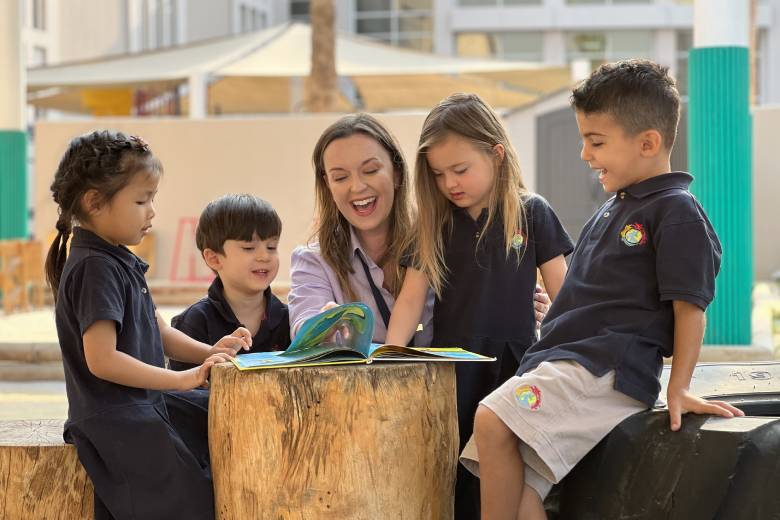Education UAE spoke to the Director of the Universal American School, Kevin Loft, whose dedication to his students and his ability to inspire change in the community serve as a testament to the transformative power of education. We first asked Kevin to talk about the school’s strengths and how it has evolved over the past year.
Kevin Loft: I think if you speak to our parents or staff, they will always say that the biggest strength of the school is its sense of community. Every school will probably tell you the same thing, but I worked in a few of them now in Dubai and it’s quite different here. That is something we’re very proud of, and something we’re very protective of as well.
Regarding how the school continues to evolve, our year-on-year enrolments are up 15% from last year, and we’re turning people away at the moment. We’re trying to keep the numbers under control. It’s that community feeling we want to retain because that is exactly what we are – a community school for the people of Festival City.
We’ve been building the American element over the past few years, so we have a lot more American teachers coming in
We have just 1,230 students but we’re a full through-school, K to 12. It’s not a common thing in Dubai, and it’s a size that allows people to still have an identity and know who people are. There is a genuine connection to staff and students. Last year, we started calling ourselves a ‘boutique school’ because, for a school that runs from K to 12, 1,200 is a small number. And so that element of community is really important to us, and it’s a responsibility we take seriously in order to deliver what the community wants.
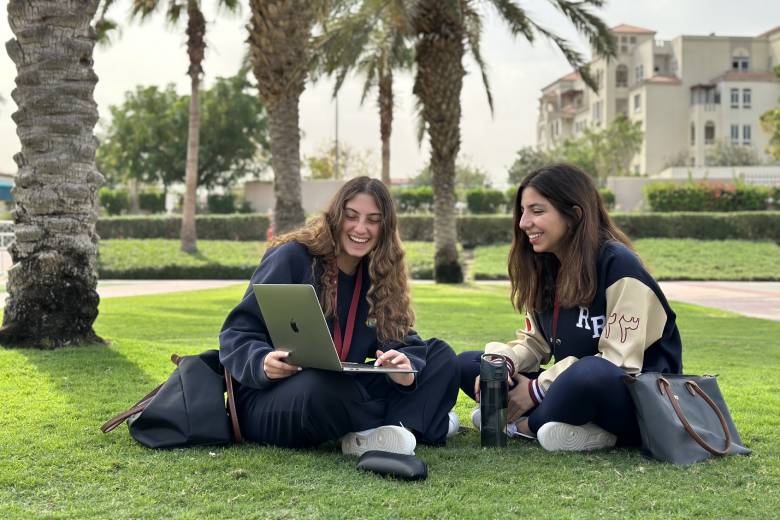
EdUAE: Can you tell me about the school’s educational approach and its curriculum?
KL: The curriculum is New York State Standards, and what we try to do is build pathways for our students. I think that’s really important. We don’t want to be a school that says that if you don’t achieve a certain level, you can’t continue with us. We want to ensure we’ve got options for our youngsters the whole way through. That, for me, is true inclusion when you’re making sure you’re meeting the students’ needs, not the students meeting your needs.
We run the Advanced Placement Programme as far as our US curriculum side, but we also run the Diploma Programme at the top end as well, so we’ve got two different pathways. There’s no preference over that for us because it’s about what the students need and where they are going. Different things suit different students with different pathways. What we’re trying to do is build pathways that actually respond to what the youngsters want – where their personal pathways are going – and building around them rather than building around us, which again is the boutique element. For a small school, that’s not easy to do, and one of the key advantages for us is being run as a not-for-profit. This allows us the flexibility to not focus on profit but on delivering what we actually want for our students and what our students want from us. So that’s a distinct advantage that we have over the wider school community.
EdUAE: More and more nowadays, it seems, young people are being allowed to be musicians and artists rather than just doctors and lawyers, and I guess your approach allows that to flourish?
KL: Yes, if you look at the investment we have put in, including a recording studio and a radio station podcast room, there is demand in that area. We have drama programmes with external providers to enhance our curriculum and the offerings we’re making in those areas. We’ve added a ceramics room with kilns and pottery wheels, so there’s definitely been growth for us on that side of the school. We’ve always had science labs and those kinds of elements, but it’s those subjects from the wider curriculum that are actually growing – it’s the breadth of the curriculum, not just the core parts down the middle.
EdUAE: That broad curriculum takes in soft skills such as empathy and compassion too, doesn’t it?
KL: We’re an International Baccalaureate (IB) school, and we run the Primary Years Programme at the younger end and the Diploma Programme at the older end, but the synergies that join those two things together are very much about the IB learner profile and those elements that brings out. This fits into what I was saying about the community; it brings all those elements together. In addition, we’ve really developed over the past two years in terms of focusing on our counselling team and all the supports that are set beneath that to make that happen. So it’s something that we teach, something that we refer to as part of our curriculum, but we’re making sure we’re staffing it structurally from our side to ensure we’re actually living those values.
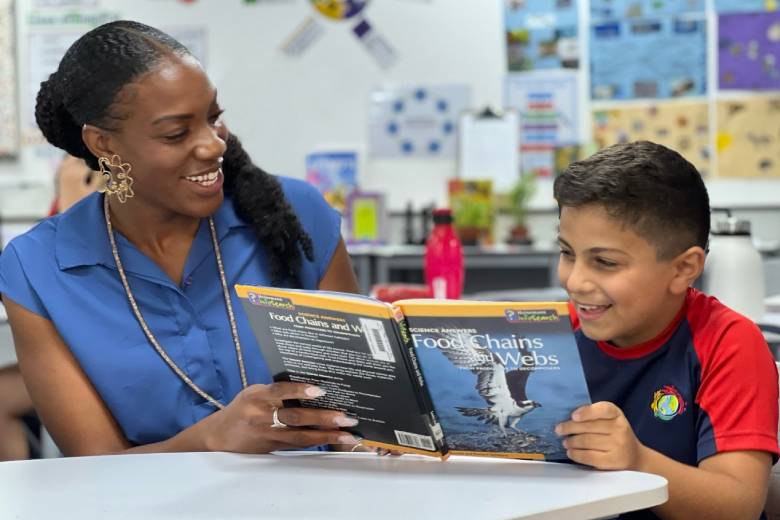
Last year, we put in what we call our Community Café, which is based around parents being part of the school
EdUAE: You mentioned counselling and well-being, but it’s not only the counsellors that need that, it’s the teachers too?
KL: Yes, it is. Last year we introduced a teacher well-being room where we try to focus on as many senses as we can, so it’s a soft environment and it’s lit differently. It has a different smell in there too, and a different sound. There’s even a waterfall in there. It’s a space for teachers to come and have time; there’s no food, and there’s no technology allowed; it gives teachers ‘brain breaks’, allowing them to have 10 or 15 minutes in their own space. We do run yoga, Pilates, and other things through different teachers. I have a philosophy whereby I think that as a leader, my job is to focus on the teachers and make sure they’re well, and then their job is to focus on the students, so there’s a kind of cascade model. But I think it can often get to a situation where we focus so much on the students that we forget that we have to make sure that the people they are with all day are in a good space too.
EdUAE: How do you encourage and promote career progression with the teachers?
KL: I call it personal professional development, not continuing professional development, and I want teachers to be professionals, so I think it’s really important that they take the lead on their personal development. It’s our job to put options in front of them – more than just one option a week. They need a menu of two or three things that they can choose from and based on their needs and what they are actually trying to develop in themselves, they should then be picking their professional development rather than saying, “Come on, everyone, sit down; we’re going to do this this week.” It should actually be led by them. So there’s always an element of school-based development on a weekly basis, but then obviously there are different international networks and local networks, and they’ll have their own networks too, and then they can come to us and say, “Look, I’ve got this opportunity,” and we support them to make sure they’ve got this wider professional development if that’s the pathway that they’re choosing.
EdUAE: There is obviously a lot in place for students who are struggling, but what about the higher achievers?
KL: I talk about additional needs rather than specifying what they are, and the first port of call is that it’s everyone’s responsibility. If you’re a classroom teacher, it doesn’t matter where the students’ needs are; you’ve got to lead and be responsible for them. We also do have specific staff that are responsible for the gifted and talented, and they make sure that they support students to ensure they are being challenged. The biggest thing at both ends of the spectrum is the work we’re doing with teachers for them to understand what it means if you’ve got a student that’s identified in your class with an additional need; what does it mean for you, and what can you do about it? The answer obviously includes personal professional development, so we can challenge ourselves in the right way wherever that need may fall.
EdUAE: It’s a holistic approach?
KL: Yes, and what we want to see in the school in the future. Absolutely, we want it to be an outstanding school – outstanding by inspection, yes, that happens along the way, but outstanding in what we want it to be as an outstanding school, so it’s about relationships and all those elements that pull together. So what we mean by outstanding is that our community still loves being here, still wants to be here, and is involved in all the different elements of the school. Those are things that make an outstanding school. Exam results and inspection results happen along the way on that journey, but if you’re getting those fundamentals right, you’re building to where you want to be.
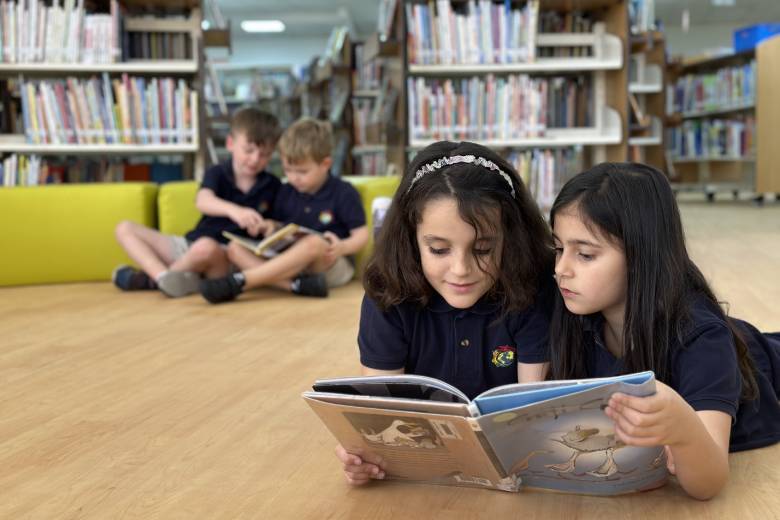
EdUAE: You can’t really focus on those inspections too much?
KL: No, there’s a process – there’s a rulebook, and we play by that rulebook. But if you want to be a truly outstanding school, it comes from the culture that’s set within the school, which is lived and breathed every day by everyone the moment they walk through the door. And that’s the big thing for us – when we talk about community and when we walk the school, we feel that community.
We’re an International Baccalaureate (IB) school, and we run the Primary Years Programme at the younger end and the Diploma Programme at the older end
EdUAE: I can sense the passion when you talk about the school, but did you enjoy your school days?
KL: Yes and no. I had additional learning needs, not the straight and narrow, so I walked a different path through schooling, I suppose, and that’s why I chose the career I chose. I wanted to do something where I thought I could make a difference, and I think if you ask any teachers coming in and explain that we’re on a journey of change and be very clear about where we want to go, it’s almost irresistible to them because it’s in their nature to want to make a difference. This is a community that’s very open to change and open to doing things differently; it’s not a school where there’s one way of doing things; it’s much broader than that. The fundamentals for us are relationships and how we treat each other, that’s really important. I have a rule in school that you say hello to everyone; it doesn’t matter who they are or whether you know them or not. It’s those cultural elements that just flow through the school that point to where we want to be and where we are going.
EdUAE: Teaching is not really a career, it’s more of a vocation, isn’t it?
KL: It is, yes, and international schools are hard work, so someone who comes into this thinking they’re going to come to Dubai, get some nice photos, be on Facebook, they’ll get shocked pretty quickly, to be honest! I always say that Dubai makes teachers and it breaks teachers, and if you want to put the time in and the professional development, I always describe it as three times what you would get in your home country. One year here equals three years at home. So you can develop at three times the speed, and you can see young teachers become leaders quite quickly.
EdUAE: Could you tell me about the extra-curricular opportunities the students have – is that quite a broad brush?
KL: It is a broad brush, and again, what I’ve focused on is if you employ the right people, you then get out of their way. What I say to them is, “What are you passionate about, and what will the students potentially be interested in?” It’s not about these are what we offer, which ones do you want to do? It’s about what you want to share with the students. Last year, we introduced a DJ course for kids; one of the staff members who was a DJ works with them on the skills that are required, the technology, and the different things they can operate with. This year we’re introducing for the first time cheerleading, and one of the staff has that as a passion, so that’s great. There has been Irish dancing and all sorts of things, depending on the teachers’ passions and what the youngsters are looking for. So for me, it’s down to the staff. If you employ the right staff, by nature they’ll always come up with different quirks and different elements that you can utilise and develop.
Obviously, we have sports teams. We have academic activities as well, so it is a broad brush. I think the thing that makes a difference is that we’re trying to bring out the individual teachers’ personalities with the students, as well as just carrying out the activities. We’ve been building our American identity over the past few years, so we have a lot more American teachers coming in, so we’re lifting that cultural identity of the school. And we are looking at American sports: basketball is already very popular, and we are now talking to an American Football provider and track and field too, so we’ll see if they are a possibility.
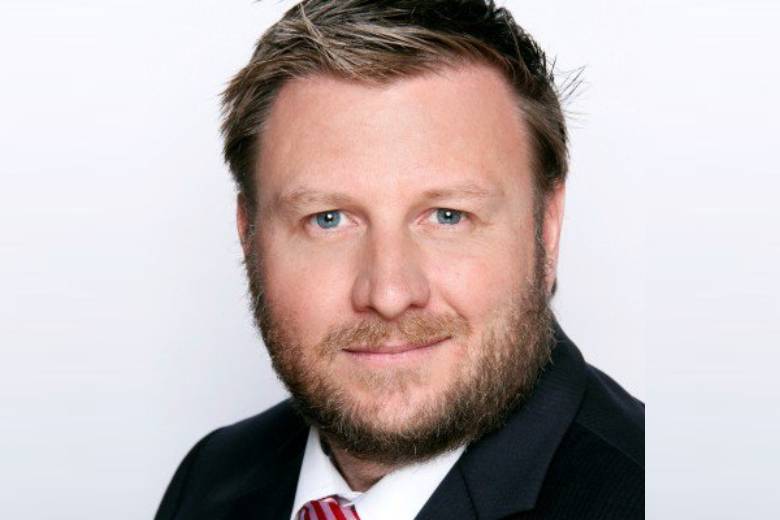
EdUAE: How do you involve the parents?
KL: Last year, we put in what we call our Community Café, which is based around parents being part of the school. That’s their dedicated space in the school, so they can come and have coffee there at any time that they like. What I say to them is, this is your space. We communicate through the usual platforms, such as emails and newsletters, but one of the things we have that I think is quite different is our marketing team. We have a team of three people who operate across the two schools in the Al Futtaim education family, so they are active on different social media platforms. As a result, we’ve got our standard communication methods, and then we’ve got our social media. We’re trying to spread our bets and hit people across different channels. We also encourage parents to ask questions, which they seem very happy to do. We try to be as available as we can.
EdUAE: Finally, it’s a very diverse student base, isn’t it? It’s not just aimed at Americans?
KL: Around 15% of students are US passport holders. We have a real mix of other nationalities across the school. There were about 80 nationalities last year – we’re still collating this year’s figures – of which approximately 15% were Emirati. It’s a real international community, a great place to learn, and a great place to teach!
Kevin Loft, Director of Universal American School, has worked in both the private and public international education sector for over 20 years, in New Zealand, the United Kingdom and the Middle East. Kevin holds a Master in Educational Leadership, Bachelor of Education, Diploma of Teaching and a Post Graduate Diploma in Behaviour. He has held both Executive Principal and CEO roles within Dubai and led Royal Dubai School from Good to Outstanding. Alongside this he has been a committee and academy member of a global education charitable foundation and worked to raise the profile of the education profession. Kevin is married with three children and has a small farm back in New Zealand where they try and live as much as possible off what they produce on the property.
















